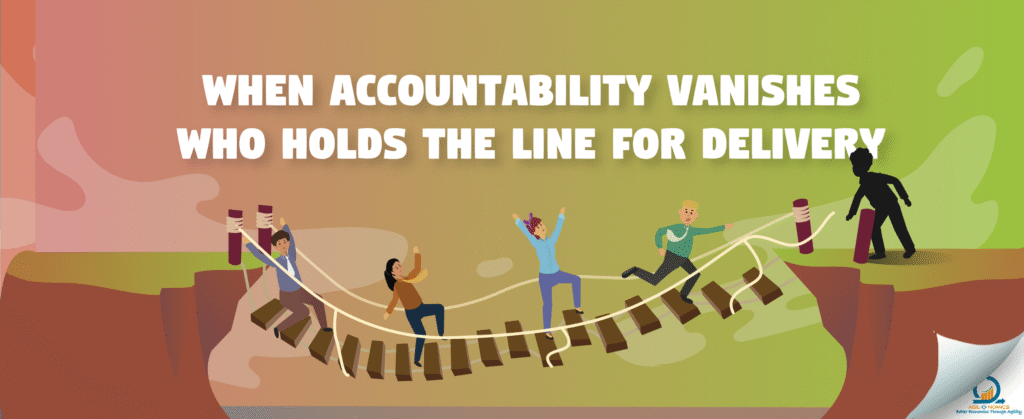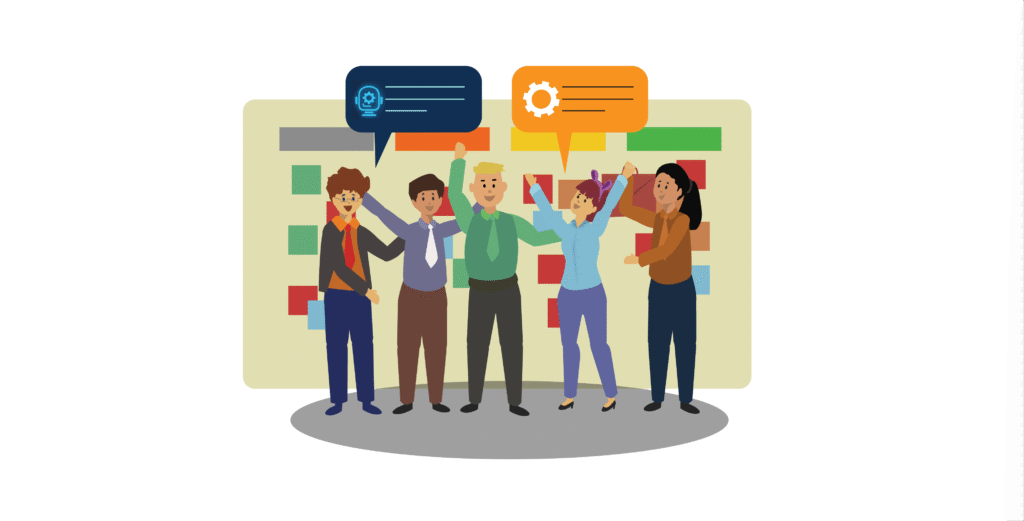
In every organization, delivery depends on more than plans and processes. It depends on accountability — that invisible thread connecting commitment, clarity, and follow-through. When that thread weakens, delivery falters, and no tool, dashboard, or ceremony can hold the line for long.
Teams often begin strong. They have a shared goal, a delivery rhythm, and confidence in each other’s roles. But over time, something shifts. Ownership blurs. Deadlines slip. The sense of shared responsibility fades into routine. Work gets done, yet no one can quite say who owns the outcome. The system still moves, but the energy behind it has thinned.
The Disappearing Act of Ownership
Accountability rarely disappears in a single moment — it erodes. It fades when priorities shift faster than context is shared. It weakens when leaders mistake visibility for alignment. It collapses when everyone assumes “someone else” will follow through.
Modern project management tools give us impressive visibility: who’s assigned, what’s due, what’s blocked. Yet these same tools can create an illusion of control. When every task has an owner on paper, it’s easy to believe ownership exists in practice. The truth is, ownership isn’t a column in a tracker — it’s a mindset that lives in the team.
Without that mindset, the flow of delivery becomes mechanical. Teams move work items forward, but meaning and purpose drain away. The question shifts from “Are we achieving our goal?” to “Is my part done?” — and the difference between those two questions determines the strength of delivery.
Supercharging Teams with Real Accountability

Technology and process should exist to strengthen human connection, not replace it. Accountability grows in teams that talk openly about expectations and outcomes. It grows when leaders model responsibility, not blame.
AI and automation can now predict delays, identify blockers, and summarize progress in real time — powerful capabilities for any delivery team. But these tools cannot replace the human discipline of ownership. They can surface risks, yet they cannot care. They can notify, yet they cannot commit.
To supercharge teams, accountability must shift from who is responsible for the task to who is committed to the result. That shift changes everything:
- Work stops being about status updates and starts being about progress.
- Conversations move from assigning blame to finding solutions.
- Leaders stop chasing compliance and start building trust.
Accountability, in its truest form, is not enforced — it’s chosen.
The process works — because the people behind it do.
A strong process doesn’t hide behind structure. It works because people understand why it exists and how it enables delivery. When accountability fades, the process becomes heavy — meetings feel obligatory, updates feel rehearsed, and learning stalls.

To create a process that truly works, leaders need to:
- Reconnect ownership with purpose. Make sure every commitment links clearly to customer impact or strategic value.
- Make clarity non-negotiable. Ambiguity is the enemy of accountability. Decisions, priorities, and outcomes should be explicit.
- Balance autonomy with support. Freedom without direction creates drift; direction without freedom kills initiative.
- Use tools as amplifiers, not anchors. Technology should simplify flow, not add noise.
AI can enhance each of these — surfacing insights, mapping dependencies, and reducing manual work. But accountability still depends on the people using it.
The Line Between Delivery and Drift
When accountability vanishes, delivery does not fail overnight — it fades quietly. Teams start meeting expectations instead of exceeding them. Discussions turn cautious. Risks go unspoken. The culture of ownership gives way to compliance.
- But when accountability thrives, delivery feels alive. People speak with conviction. Teams own outcomes collectively. Leaders don’t need to chase progress; they enable it.
So, who holds the line for delivery? The answer is simple — everyone who believes the outcome matters. Every person who refuses to let “done” mean “almost.” Every leader who treats accountability not as control, but as commitment.
Technology will keep evolving, but accountability will always remain human. And in the end, that’s what keeps delivery real.

